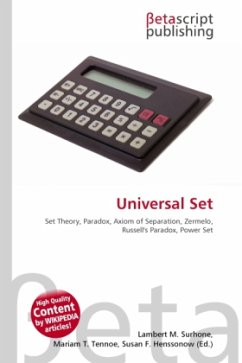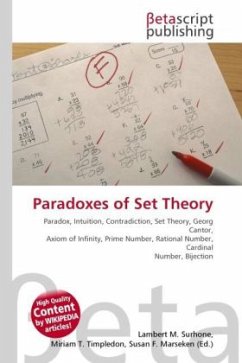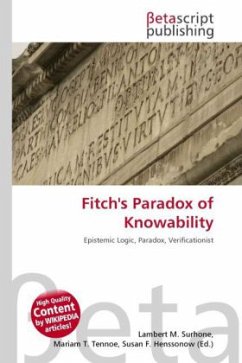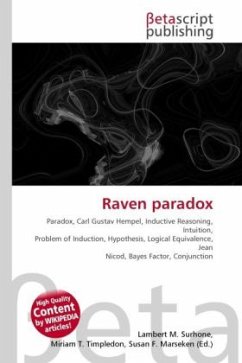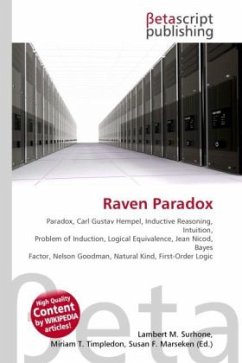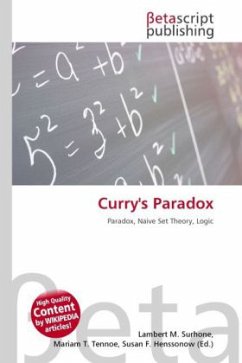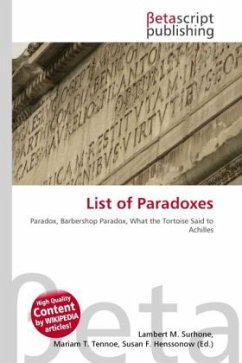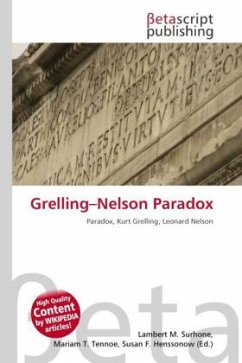High Quality Content by WIKIPEDIA articles! In set theory, a universal set is a set which contains all objects, including itself. In set theory as usually formulated, the conception of a set of all sets leads to a paradox. The reason for this lies with the parameters of Zermelo's axiom of separation: for any formula varphi(x) and set A, the set {x in A mid varphi(x)} which contains exactly those elements x of A that satisfy varphi exists. If the universal set V existed, then Russell's paradox could be resolved by considering {x in Vmid xnotin x}. More generally, for any set A we can prove that {x in Amid xnotin x} is not an element of A. A second issue is that the power set of the set of all sets would be a subset of the set of all sets, providing that both exist. This conflicts with Cantor's theorem that the power set of any set (whether infinite or not) always has strictly higher cardinality than the set itself.
Bitte wählen Sie Ihr Anliegen aus.
Rechnungen
Retourenschein anfordern
Bestellstatus
Storno

